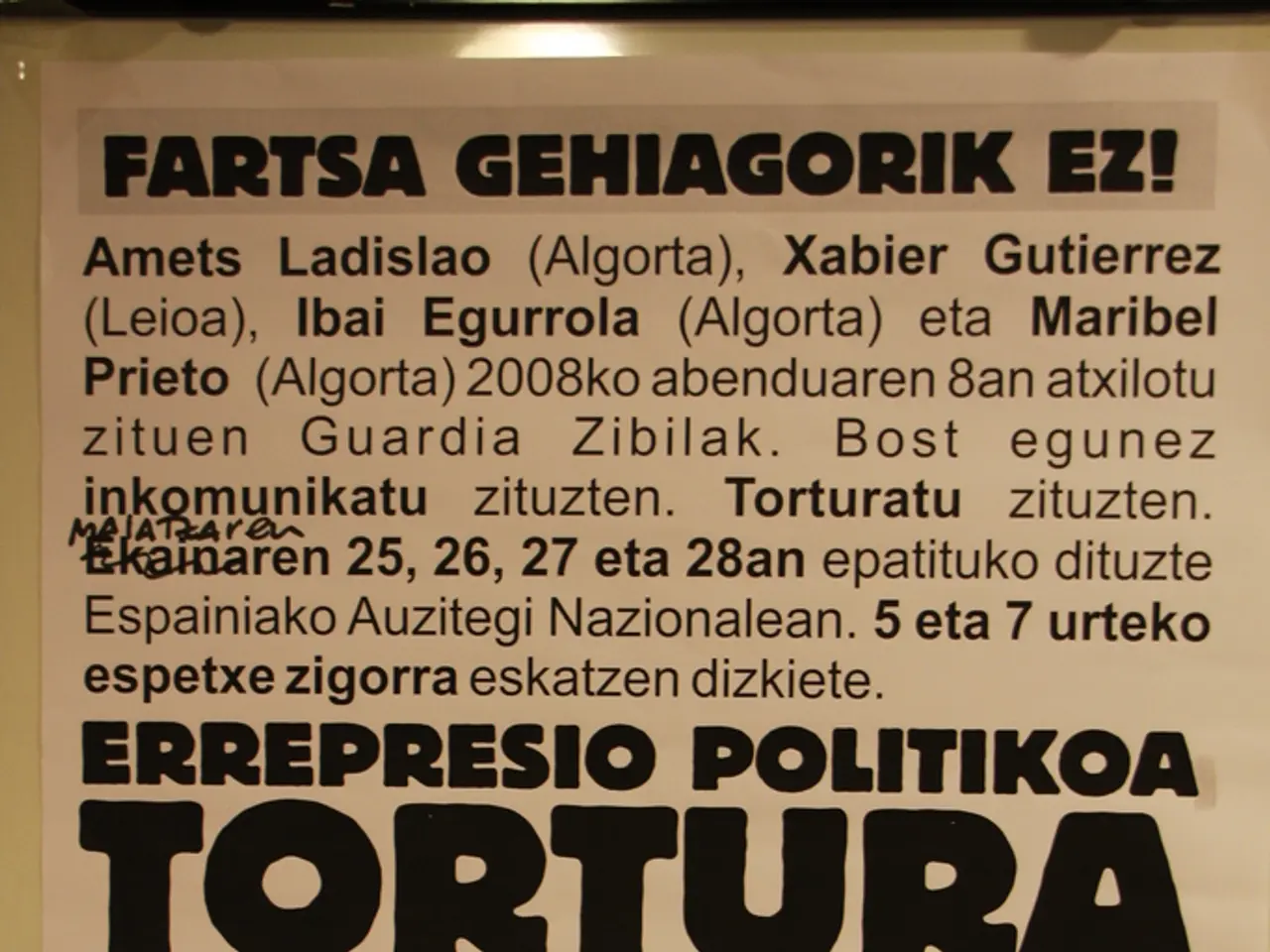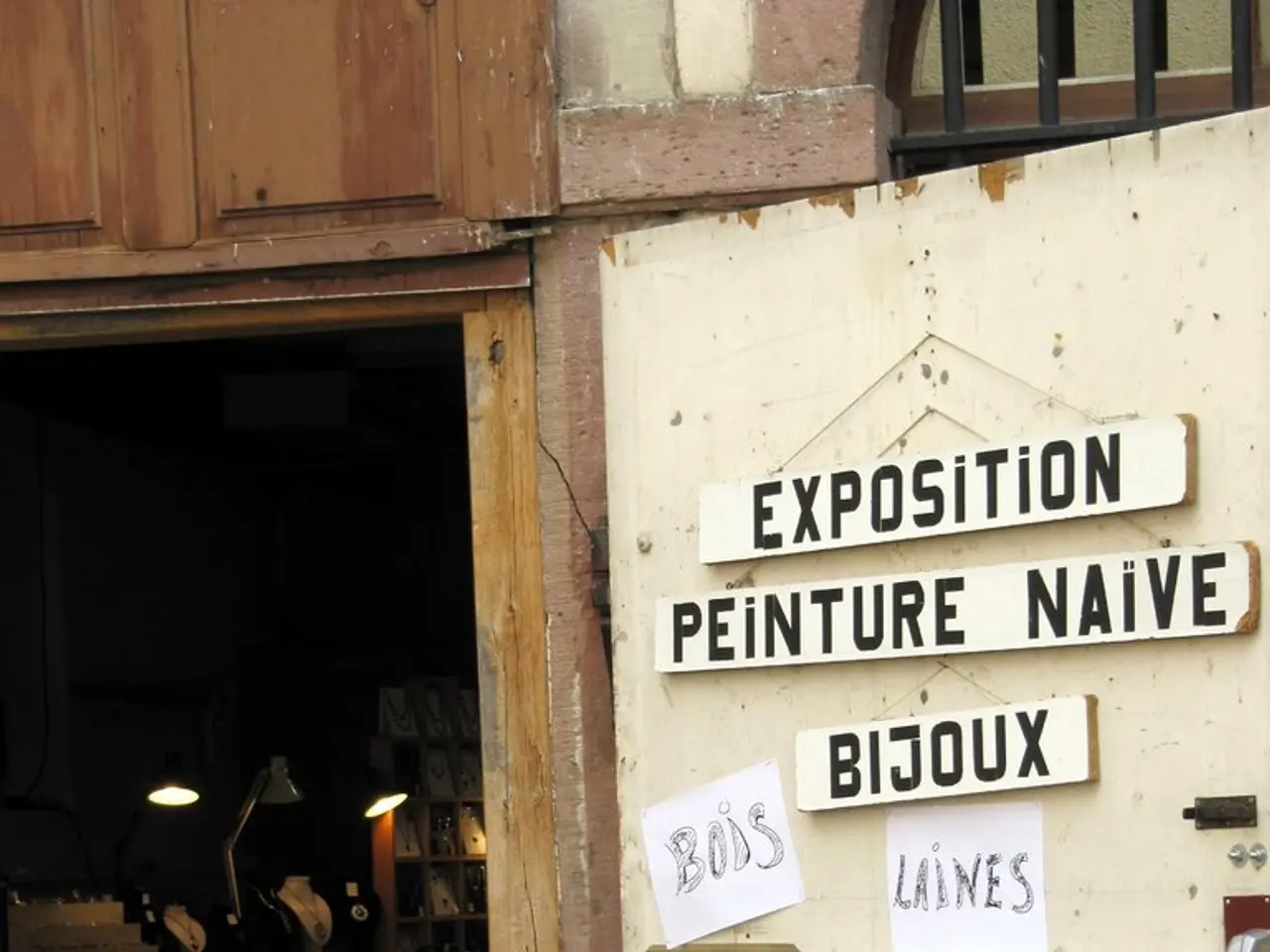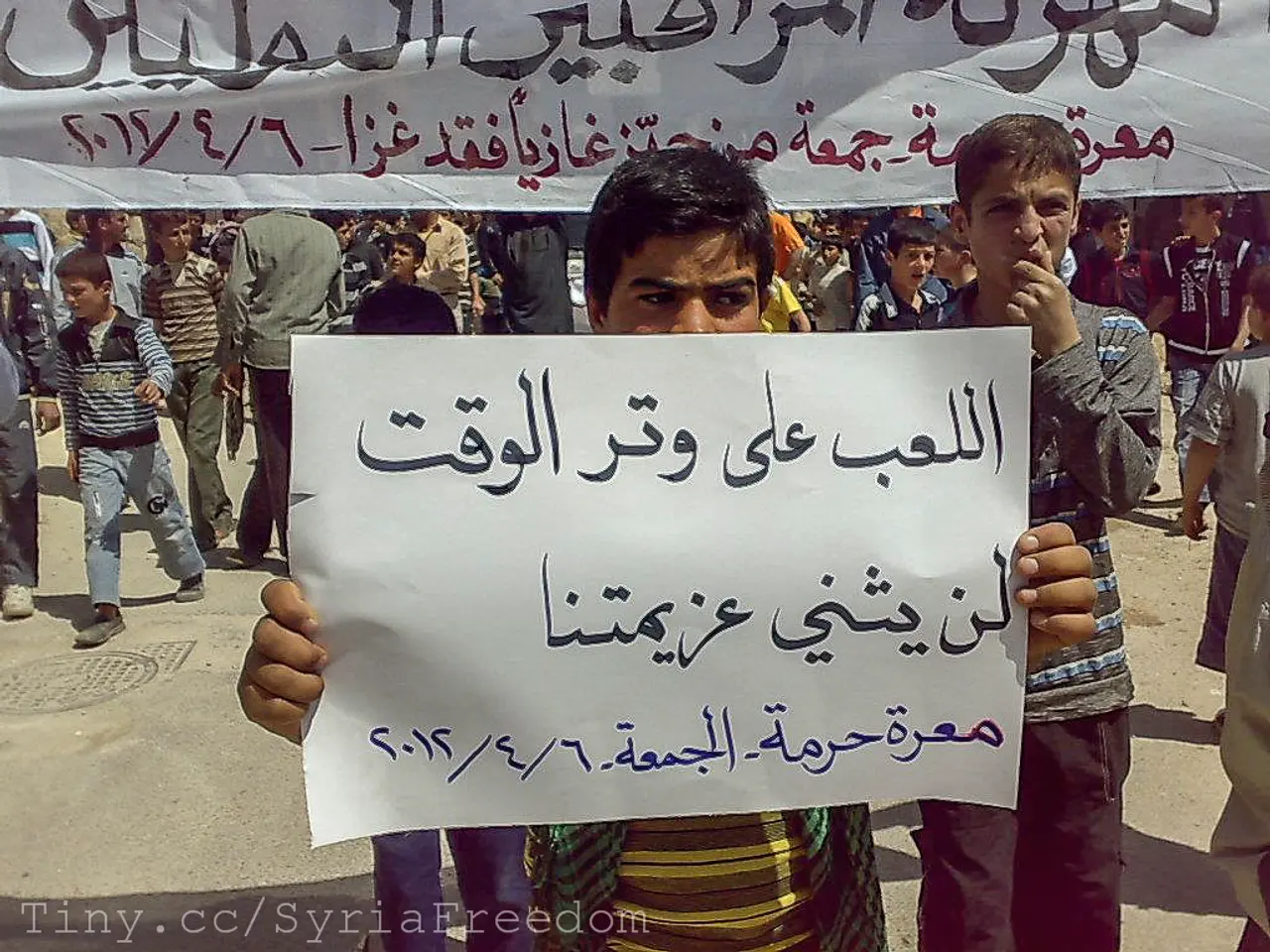Far-right organizations advocate for a violent pursuit against migrants, resulting in several injuries. - Radical right-wing groups advocate for "pursuit of migrants," resulting in several casualties.
In the southeastern town of Torre Pacheco, located in the Murcia region of Spain, a wave of unrest and violence has gripped the community following a series of riots instigated by far-right groups. The riots, which occurred over three consecutive nights in early July, were sparked by an alleged assault on a local elderly resident by youths of North African origin, and quickly escalated into violent attacks against migrants, primarily those of Moroccan descent.
The initial demonstration, planned for Friday afternoon, was initially peaceful but was soon overshadowed by extremist elements, including members of the political party Vox, who have a significant following in the region. Over the course of the riots, five people were injured, and shops owned by migrants were threatened or targeted.
The Spanish government, through its officials, has addressed the situation on online services such as X and Bluesky. Pedro Ángel Roca Ternel, the mayor of Torre Pacheco, called for calm and peace among the city's residents, while Sira Rego, the Spanish Youth Minister, strongly condemned the racist persecution of migrant people in Torre Pacheco. Fernando López Miras, the conservative regional leader, expressed understanding for the frustration but condemned the violence.
The far-right groups have leveraged social media and encrypted messaging platforms to spread inflammatory messages and coordinate anti-migrant actions. These online calls explicitly urged violence and expulsion of North African migrants, with offensive and threatening language promoting vigilantism against migrants. Videos circulated widely on social media showing migrants being attacked, although many of these videos were manipulated or fake, contributing to misinformation and further hostility.
The violence and far-right agitation have created a climate of fear among migrant communities, leading to some families closing businesses and withdrawing children from schools. The region relies heavily on migrant labor in agriculture, so the unrest threatens both social cohesion and the local economy.
Police arrested between eight and nine people related to the violence and disturbances, including both Spaniards and some migrant residents linked to the altercations. Law enforcement deployed about 90 Civil Guard officers to control the situation and prevent further violence. The Spanish government has not yet made a formal statement condemning the far-right groups specifically.
The authorities' response has involved arrests, enhanced police presence, and investigations into the online spread of hate messages to prevent further escalation. The Bishop of Cartagena called for peace and fraternity, while Spain’s Migration Minister and Interior Minister blamed far-right groups, particularly Vox and the conservative People’s Party, for inciting the unrest through divisive rhetoric.
The situation in Torre Pacheco serves as a stark reminder of how far-right extremism can manifest violently both offline and through social media, significantly destabilizing local communities with large migrant populations. The challenges of combating hate-driven mobilization in Spain’s Murcia region remain a pressing concern.
- In response to the riots, various Spanish government officials, including Mayor Pedro Ángel Roca Ternel, Youth Minister Sira Rego, and the conservative regional leader Fernando López Miras, have issued statements through online platforms X and Bluesky, addressing the unrest in the community policy and condemning the racism and violence against migrants in Torre Pacheco.
- The Spanish government's employment policy, driven by its Interior and Migration Ministers, has focused on investigating the online spread of hate messages as a means to prevent further escalation and combat far-right extremism, particularly from groups such as Vox, who have been accused of inciting violence and divisive rhetoric in the region's politics and general-news landscape.






